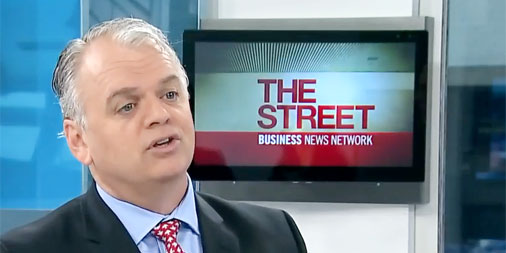Your Career Is Like a Movie. How Do You Take Control of Your Story?
Posted on August 09, 2023
What’s Your Leadership Story?
The room darkens, lights dimming slowly as if carefully entombed in molasses. From all around, a soft soundtrack tickles your ears. As the music gets louder, an opening montage flashes to life. A scene bleeds onto the screen. Maybe it’s a peaceful countryside landscape, or perhaps a grungy alleyway.
Regardless of what’s playing, you’re familiar with what’s happening: it’s the beginning of a movie, and you know movies. The story will begin with a flourish, rise to a climax, then settle comfortably into an ending of sorts.
Despite the absence of a sweet melody strumming in the background, your work life is no different: your career has a plot, too. First is the classic beginning, where key characters are introduced—your first manager, your co-workers, and the cast are never-ending. They’ll, at some point, play a role in your story. Then, we have the “rising action,” where you, the main actor, carve a path to a climatic point, bombarded with challenges. This progression leads to the climax: a big promotion, a higher salary, a c-suite, work-life balance, or however else you define your work goals. Following the big spark is, of course, the steady descent into the end of your career. Sound grim? It isn’t. In fact, for many, this is exactly how a career should unfold – but there’s a caveat. The duration of each stage can differ between individuals. For some, the rise is fast. For others, the fall is faster. It’s impossible to control time, but it is possible to acknowledge, be present and learn from each stage of our story.
Like every good movie out there, your work story requires effort. If you don’t want to be slapped with a rancid rating on Rotten Tomatoes, reflect on these two questions: 1) Where are you in your story? And 2) Are you the protagonist or the observer?
Where Are You in Your Story?
Think about every hero on screen: they trench through different stages of development as the plot progresses, and you, as the hero of your career story, will too. So, where are you in your story?
First is the start of the journey, when the main character departs from the known into the unknown. In the business world, this would be an Aspiring Leader. You’re either new to management or hope to be promoted to your first managerial role. In this stage, you want to stand out amongst peers, tackle the challenges of this relatively new role or grasp that new promotion.
Next, the hero is midway through their journey, and so are you. As a Mid-Career Leader, you’re a dedicated or growing manager. You’ve been in a leadership role for a few years and know the job. Yet, there are a few areas you need help with: you’d like to develop further skills on the job as your responsibilities grow, hone your collaboration skills, and climb up the ladder.
Seasoned cinephiles will tell you that the end of a hero’s journey very rarely means the conclusion of everything. Even veteran heroes have more to learn and accomplish, which means Senior Leaders do, too. At this final stage, you are at the pinnacle of your career, but you can still develop and expand your expertise. Having been in this role for years, you may know your job and organization, but you can still expose yourself to new, innovative ways of thinking, sharpen your decision-making skills, and expose yourself to evolving tools and strategies.
So, ask yourself: where are you in your career story right now?
Are You the Protagonist or Observer?
Brace yourself, brave protagonist. Here comes the hurdle. It’s the pique of an action film, and you’re staring the antagonist down, both tensed and ready for the final fight. In a slice-of-life story, you’re plunged into a heartbreaking moment of self-realization: maybe I’m the problem. The main obstacles in your career story are very much the same.
In this constantly shifting business and social landscape, the trends and challenges you’ll face in your career morph as well. Mapping where you are in your career story is one thing, but you need to know how to face the hurdles you encounter. For instance, major trends affecting industries include the exponential digitization of business operations and customer experiences, skill shortages across industries and sectors, and the demand for sustainable practices.
What will you do to face these trends? Will you watch your career unfold without the sense of control you once had? Time is passing, and you stare at the hurdle and do nothing: you don’t feel like you’re “rising to a climax” or descending into a “happy ending.” Stagnant. An observer in your own story. Sometimes, we watch our own movies forgetting we are the protagonist. We are the leaders of our own story, and even so, it can be easy to slip into a comfy seat and watch. The trick is to realize when you’ve become an observer and take back control of the narrative.
Taking Back Control
If you’ve decided to be the protagonist, to take control of your own movie and confront the obstacles, then you need the tools to do so.
As an Aspiring Leader, that means building core managerial skills, reinforcing your roles with tools, and gaining confidence in your leadership style. Mid-Career Leaders also need new tools, as well as credentials and enhanced training and connections. For Senior Leaders, the main goals include gaining holistic perspectives, building networks with fellow leaders, and being aware of new strategies and ways of thinking in their industries.
Across all these stages should be an awareness of supporting characters. You may be the main character, but you are not alone in your career journey: business is built on finding mentors to guide and teach you the tips, tricks, and inner workings of your career journey. Forbes has even reported that up to 70% of Fortune 500 companies take part in mentorship programs.
You know you’re in control of your own story when you can play with the dials, add the twists, and brace for the unexpected. Like any great character, you’ve developed as the movie goes on. Your development reveals more about you and your ability to take what life throws at you. We are all developed characters in our own story. We can all take control. We are the writers, actors, founders and directors. And sometimes, we lose control and simply watch. But the very first step of an effective leader is taking back control of their own story even when the unexpected happens. So, when life gives you lemons, make a movie.
Closing Scene
And just before the ending credits filter on-screen, the final scene plays. A robotic voice, saying, “Your mission, should you choose to accept it…”
Or a wizened wizard, stroking their wispy beard and foretelling the next great prophecy.
Either way, they’ll say the same thing: to learn where you are in your career story, find mentors to guide you on your journey and gain the skills to be a protagonist rather than an observer, you can book a call with the advisory team at Schulich ExecEd today.













